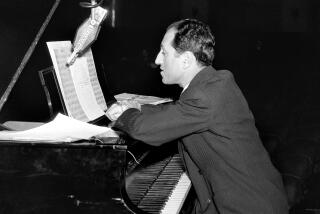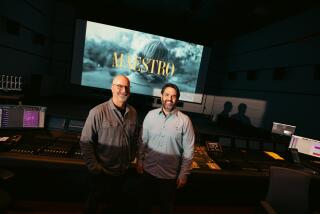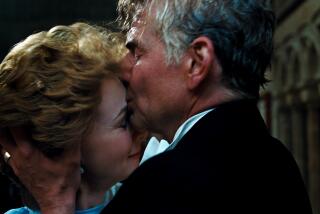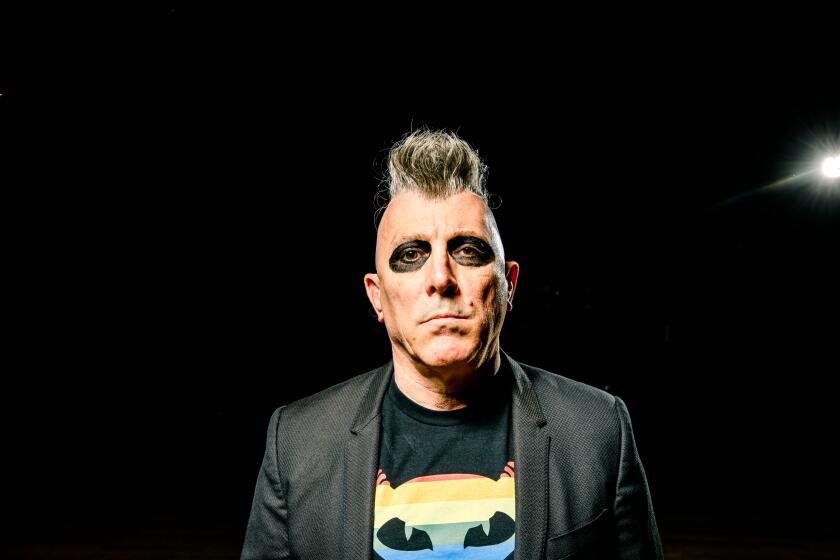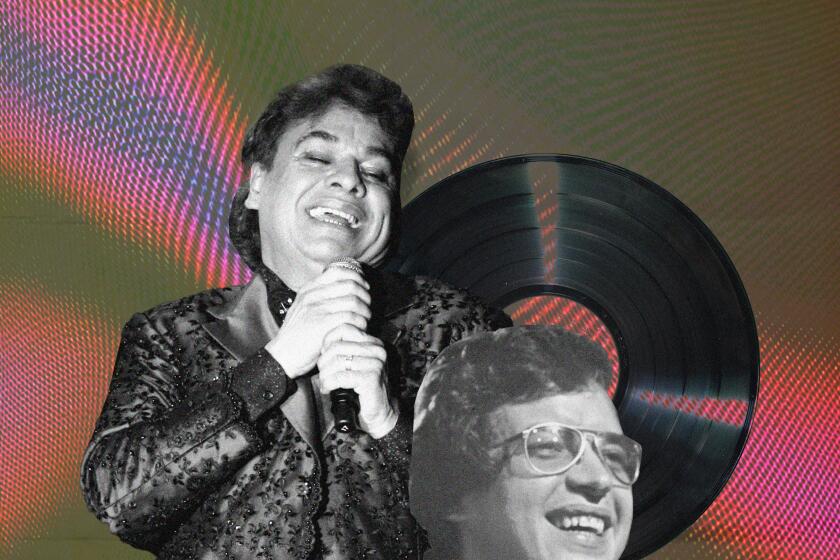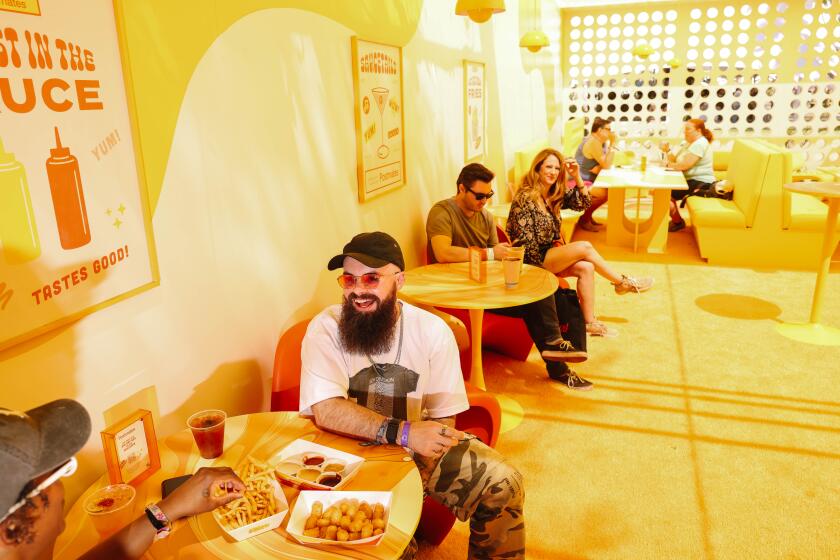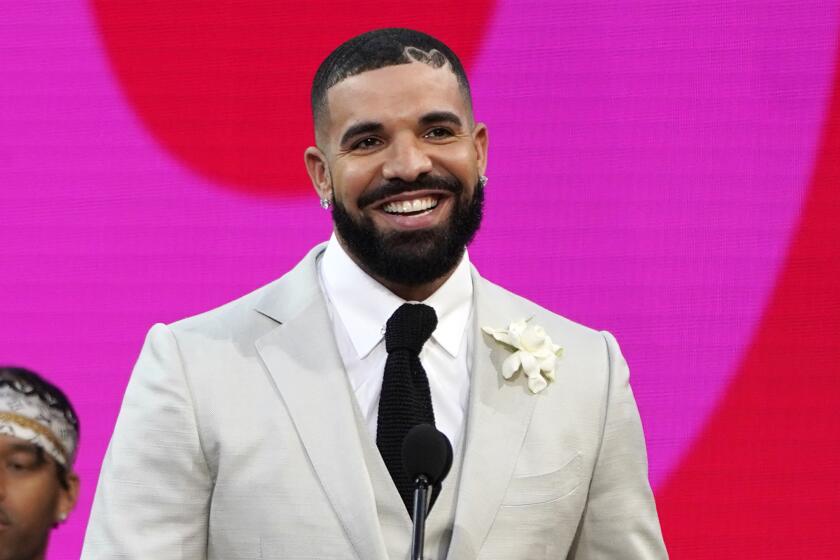Adam Schoenberg’s life gives his music some ‘Bounce’
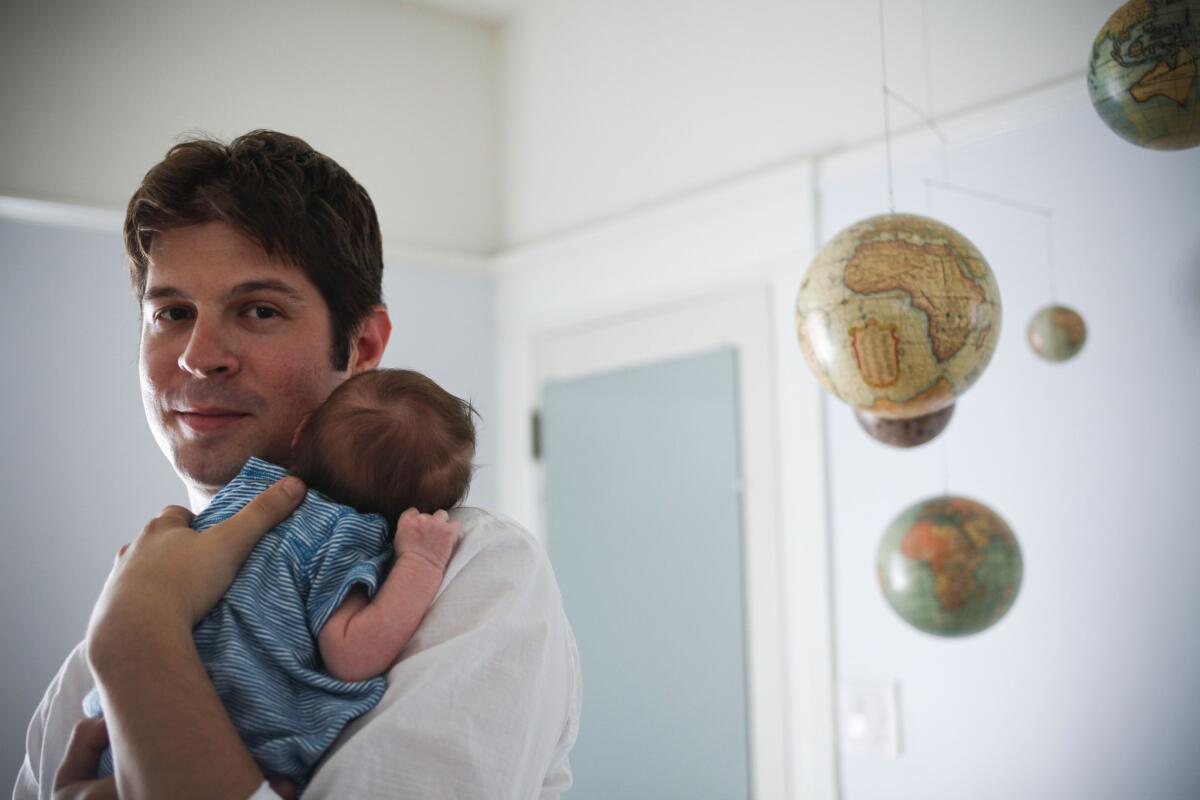
Given his last name and the fact that he’s a Los Angeles-based classical-music composer, Adam Schoenberg has been asked a certain question more times than he cares to remember: Is he related to the late, great 20th century composer Arnold Schoenberg?
“No, I’m not,” said the 32-year-old Schoenberg with a rueful smile, as if sorry to disappoint. Seated on a couch in his L.A. home during a recent interview, he explained that he hails from rural Massachusetts and that he’s a relatively new Angeleno, having moved here a few years ago with his wife.
But Schoenberg said that his family tree isn’t completely devoid of musical genius — he is distantly related to the Gershwin clan by marriage.
On Tuesday, Schoenberg’s “Bounce” will be presented at the Hollywood Bowl. The 10-minute piece, co-commissioned by the Aspen Music Festival and School and the Los Angeles Philharmonic, originated as a ballet, but Tuesday’s concert will feature just the orchestral version. (As it happens, the performance also will feature music by George Gershwin.)
PHOTOS: Arts and culture in pictures by The Times
A Juilliard graduate, Schoenberg has worked closely with conductor Robert Spano and the so-called Atlanta School of composers — a cohort of new-music writers who collaborate frequently with the Atlanta Symphony. Schoenberg’s “American Symphony” will be presented in Atlanta in October.
His piece “Finding Rothko,” a chamber orchestra piece inspired by the works of Mark Rothko, will be presented in April by the Pacific Symphony in Costa Mesa.
This summer has been a busy one for Schoenberg. His wife, Janine, a playwright and screenwriter, recently gave birth to their first child, a son named Luca. (“Bounce” is inspired by their son.) This semester, he begins a full-time teaching position at UCLA’s Herb Alpert School of Music. He will teach classes, appropriately enough, at Schoenberg Hall.
The composer spoke about his new piece and his career so far. Here are excerpts from the conversation.
How would you describe “Bounce”?
A friend of mine said it sounds like Radiohead meets Aaron Copland. I think that’s pretty accurate.
Is there anything unusual about the piece?
It uses an instrument called an aluphone. It’s a new percussion instrument that comes from Denmark. [It features a series of bowls in a marimba-like formation.] I think it’s the first time that it’s been used in an orchestral composition.
How difficult is it to make a living as a young composer in L.A.?
Last year, I made a living off of my compositions. But with a family, I need more income. The teaching position at UCLA definitely helps.
You’ve written scores for some independent movies. Does Hollywood interest you?
I would love to write a film score and one orchestral piece a year. But what’s important for me now is composing for orchestras.
You wrote an academic thesis on film composer Thomas Newman. What was that like?
He’s someone who’s been influential on my own music. I was able to come out here and watch him work on “Revolutionary Road.”
What’s your favorite Thomas Newman score?
“American Beauty.” I just saw “The Best Exotic Marigold Hotel,” and I thought his music for that was excellent. I also liked his score for “Wall-E.”
Were you a musical kid growing up?
I pretty much kept to myself as a kid, and the piano was something I could do on my own. But music wasn’t something I considered as a career until I got to college [at Oberlin].
What do you do when you’re not composing?
I’m a big sports fans. I’m always watching “SportsCenter” [on ESPN].
Would you describe yourself as a fast composer?
No, I’m a slow writer. Improvising is big for me. I’ll sit at my piano [a 1917 Steinway baby grand] and just improvise. Then I’ll write it down by hand. I feel comfortable composing that way, but I’ll also use software.
Is it easy to compose with a newborn in the house?
My studio used to be in what is now the nursery. But now I can compose at work. I’m usually the most productive between 1 a.m. and 4 a.m.
Doesn’t that wake the baby?
He wakes up every 30 minutes, so it’s not a problem.
More to Read
The biggest entertainment stories
Get our big stories about Hollywood, film, television, music, arts, culture and more right in your inbox as soon as they publish.
You may occasionally receive promotional content from the Los Angeles Times.
